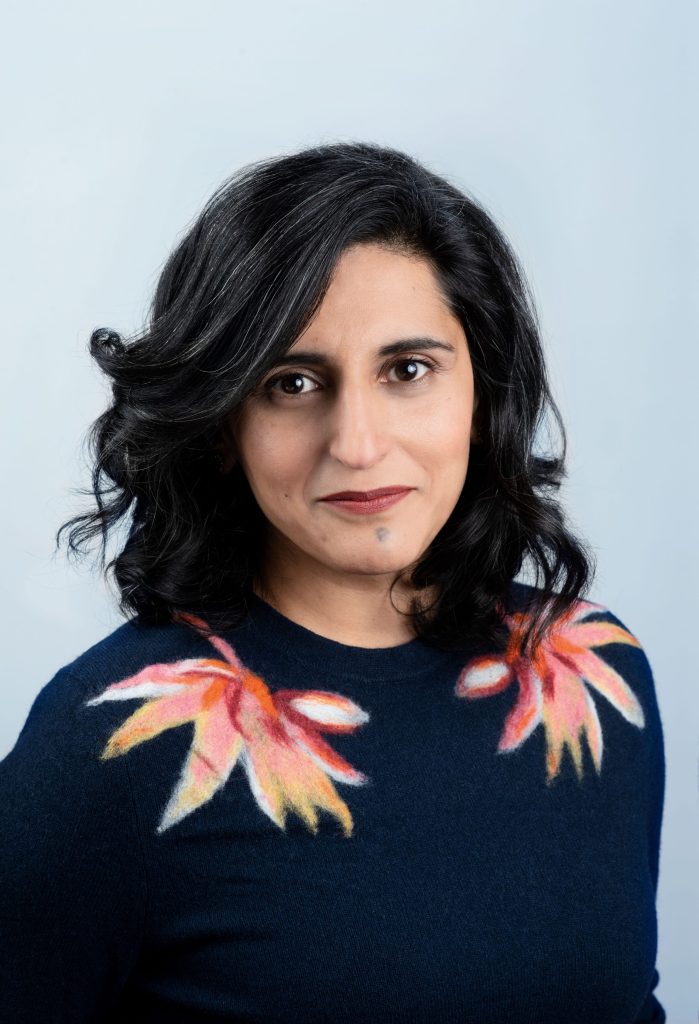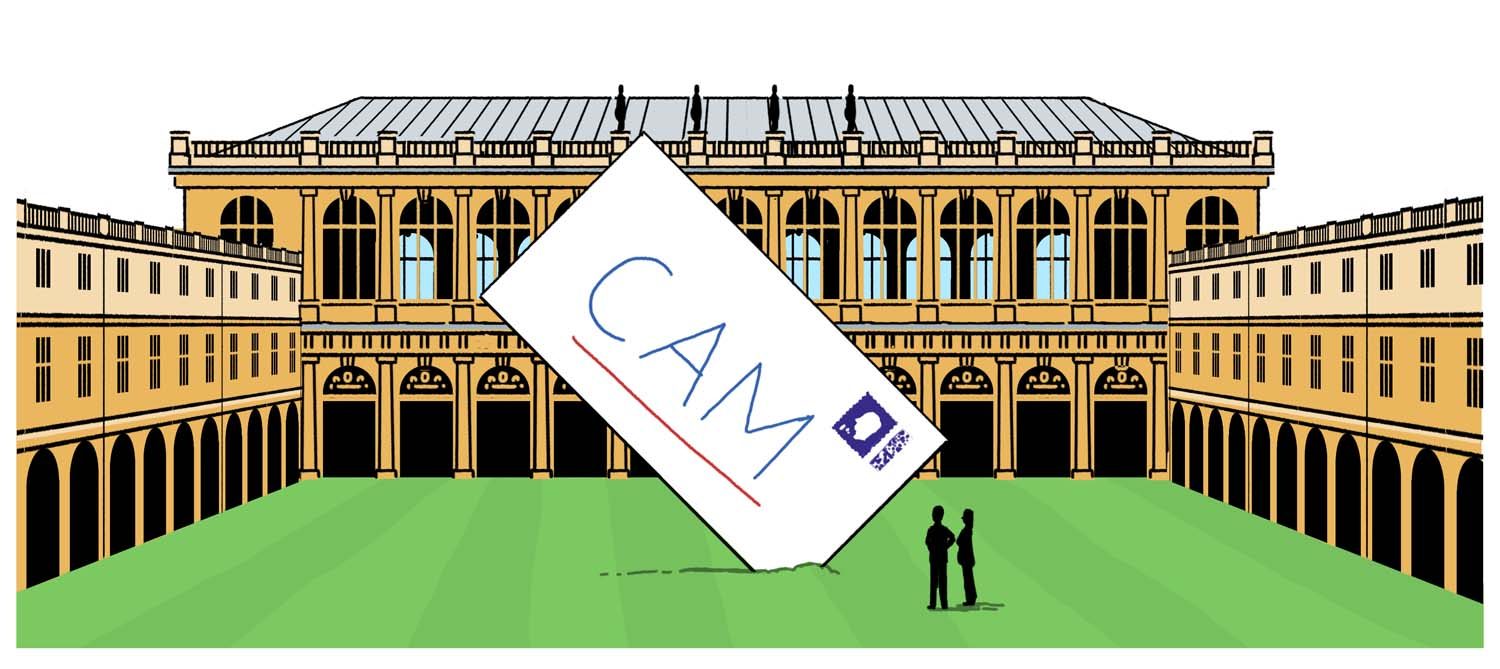Inbox: CAM 101

Welcome to the Lent edition of CAM. Two hundred cows. Three hundred lambs. Two hundred and fifty hectares of arable. And as we were there in February, absolutely loads of fluffy, gambolling lambs. The University’s farm (yes, farm) is located just four miles from central Cambridge.
Speaking of finding out what it’s like, have you ever considered what it’s like to lead the greatest university in the world? Vice-Chancellor Professor Debbie Prentice says it’s the best job in the world. Meanwhile, if you’ve ever looked into the night sky and thought it unlikely that our tiny planet, in our (relatively) tiny solar system, could possibly be the only place that supports life in the vastness of the universe, we know what you mean. We ask: do aliens exist? And if they do, what do they look like? The answers may surprise you.
Elsewhere, we find out why everyone else seems to think Gen Z are lazy, and we visit Kettle’s Yard to discover what it’s like to borrow a real Ben Nicholson or Henri Gaudier-Brzeska to decorate your College room.
On these topics – and on all things Cambridge-related – we look forward to your contribution to the debate, online, by post and email or on social media.
Mira Katbamna (Caius 1995)

CAM is too interesting
When my wife and I play cribbage, it takes her longer than me to sort out the cards for she is blind and has to finger the dots on the braille cards we use. This gives me a few minutes’ free time each hand, time I spend reading CAM. But perhaps you could make the magazine less interesting, which would enable me to focus more on the actual cribbage, for in overall games scored I am losing 173-275!
Steve Royle (St John’s 1968)
The myth of obesity
I found Professor Sadaf Farooqi’s article (This Idea Must Die, CAM 100) on the myth of obesity being a question of willpower very interesting, and fully support her plea for a change of attitude towards obese people. However, it failed to address the question that must concern many of us: why do we apparently have an epidemic of obesity at present? Or is that a myth too, driven by increasingly rigorous definitions of obesity? Experience within the NHS of the number of obese patients presenting with serious medical conditions might suggest otherwise.
Colin Johnson (Trinity 1959)
I have always assumed that being naturally thin is a matter of luck, but was pleased to read that there is a scientific basis for this. But in my lifetime the proportion of overweight and obese people in the UK has risen sharply; hard to believe that this indicates rapid genetic changes in the population. More likely it is to do with the amount of processed foods that so many people now eat. Either it is a side effect of ingredients used to reduce production costs or the food industry deliberately includes ingredients to stimulate appetite and so increase sales. In the absence of an industry whistleblower or some quality research into the matter we are unlikely to find out which.
Stephen Ades (Trinity 1982)
A daily diet of Chelsea buns from Fitzbillies will have an effect on one’s weight, not all of which can simply be blamed on leptin deficiency.
Iain Rodger (Fitzwilliam 1976)
My room, your room
John Simpson (My room, your room, CAM 100) seems to think that having to walk down the corridor to the loo at Magdalene was something of a tribulation. At Peterhouse in 1953, it was on with your overcoat, shoes and hat and across Gisburne Court in eight inches of snow to the Birdwood. It’s amazing how long one can hold on.
David Latimer (Peterhouse 1951)
Lovely piece! I had a wonderful set of rooms at Girton in my final year – D29, with south facing casement windows overlooking Mares’ Run, an idyllic field that was home to several silver horses. It was magical. I’m sure Julia Golding, my predecessor, agrees.
Sharon Jones (Girton 1989)
Black Atlantic
The caption to the picture of Akan gold weights (Black Atlantic, CAM 100) mentions that the weights were a gift to Miss Mary Cra’ster, who is described as “an assistant at the Museum of Archaeology and Ethnology in the 1970s”. This description does Mary Cra’ster little justice. She was Assistant Curator of the world class archaeology collection, archaeologist, author and FSA London. She dedicated her life to the University and encouraged generations of undergraduates, including myself, to follow careers in archaeology and research. I am sorry that she seems to have been forgotten.
Iris Barry (New Hall 1969)
Cambridge committees
Your piece on committees (On the ball, CAM 100) reminded me of my own “band that got away” story. Mine is of the time I was Chair of the 1978 King’s Committee, when one day I received a note in my pigeon hole asking me to call a band management company. It turned out that the band Magazine were in the recording studio and wondered if we would like to book them to headline the Ball. As we had a sold out Ball with a full band roster I said no. So it was that the first and leading post-punk band that inspired a generation – including Radiohead, Simple Minds, the Smiths, Pulp and more – did not go to the Ball that night.
Paul Filer (King’s 1976)
Churchill Ball committee during my final year! I remember painting a wave mural inspired by Hokusai (ocean-bound theme) – it was such a great mental break from the pressures of finals. Even at times in life when you are under such high pressure, it actually helps to have a different thing to focus on some of the time. I also found myself working alongside people I’d never have chosen to, so that was a great life lesson too – how to build that trust and respect, no matter what your differences. Of course, it helped that we had a great committee chair, Adam Bishop (Churchill 1999) to make sure we all got along. Now I volunteer to chair a committee that co-ordinates undergrad vacation students at my organisation, and it’s one of my favourite parts of the job.
Hazel Parry (Churchill 1999)
Write to us
We are always delighted to receive your emails, letters, tweets and facebook posts.
- By email
- cameditor@alumni.cam.ac.uk
- By writing
- CAM, 1 Quayside, Bridge Street, Cambridge, CB5 8AB
- By Twitter
- @Cambridge_Uni
- By Facebook
- facebook.com/cambridgealumni
Please mark your letter ‘For publication’. Letters may be edited for length.



